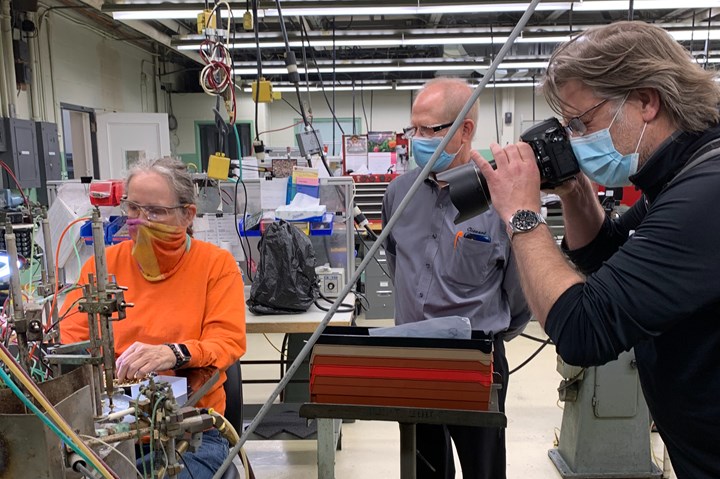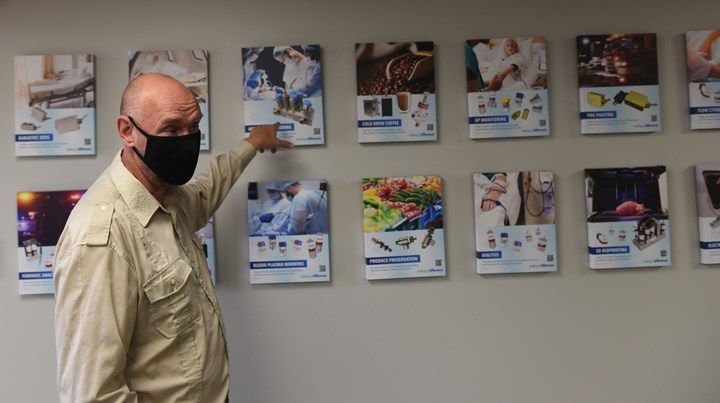Visit to Clippard Reveals Value-Added Projects
Senior Editor Lori Beckman describes her experience visiting Clippard Instrument Laboratory to write her June feature article and reveals a medical monitoring value-added project that the company is working on for a customer.

I visited Clippard Instrument Laboratory Inc.’s headquarters a couple of times to write Production Machining’s June cover feature article on this company’s value-added service, which I’m excited to share with you soon. Because of Clippard’s convenient proximity to me — we are both located in Cincinnati, Ohio — I was lucky enough to have our creative director and photographer, Jeff Norgord (above with camera), accompany me to shoot some great images to illustrate the story on my second visit there. We met with Robin Rutschilling (above, center), director of operations, who gave us a thorough tour and generously provided me with valuable information to share with all of you about not only Clippard’s value-added processes but also how any machine shop can offer value-added service to their customers.

Jeff captured part of the wall at Clippard that illustrates the many products and applications that the company produces for its customers.
Rob Clippard (directly above), who began the company’s value-added department, describes a value-added project for medical monitoring, which is used during cardiac surgery. He says Clippard removed much of the assembly work, the fittings and tubings, and a lot of the large parts from the original system and reconfigured the valves and components to reduce its size by almost half.
“The ‘value added’ was taking a company’s existing system that they proved out and reducing the size, complexity and manufacturability of the system,” he explains. “We tout a lot that we aren’t just the guys behind the circuit; we can figure things out. We know what it is going to take to make a product. So, we have a manufacturing mindset over a lab mindset.”
With this project, the process involved deciding how to make the acrylic manifold in so many steps, adding on the components and then testing the system, especially to ensure its leak-tight specifications were met. Clippard says the challenge of an assembly like this is building an extremely tight overall system, which requires tight tolerances on the manufacturing end.
For more about Clippard’s value-added processes, look for the article in PM’s June issue and live on our website on June 2.













.png;maxWidth=300;quality=90)


.png;maxWidth=970;quality=90)